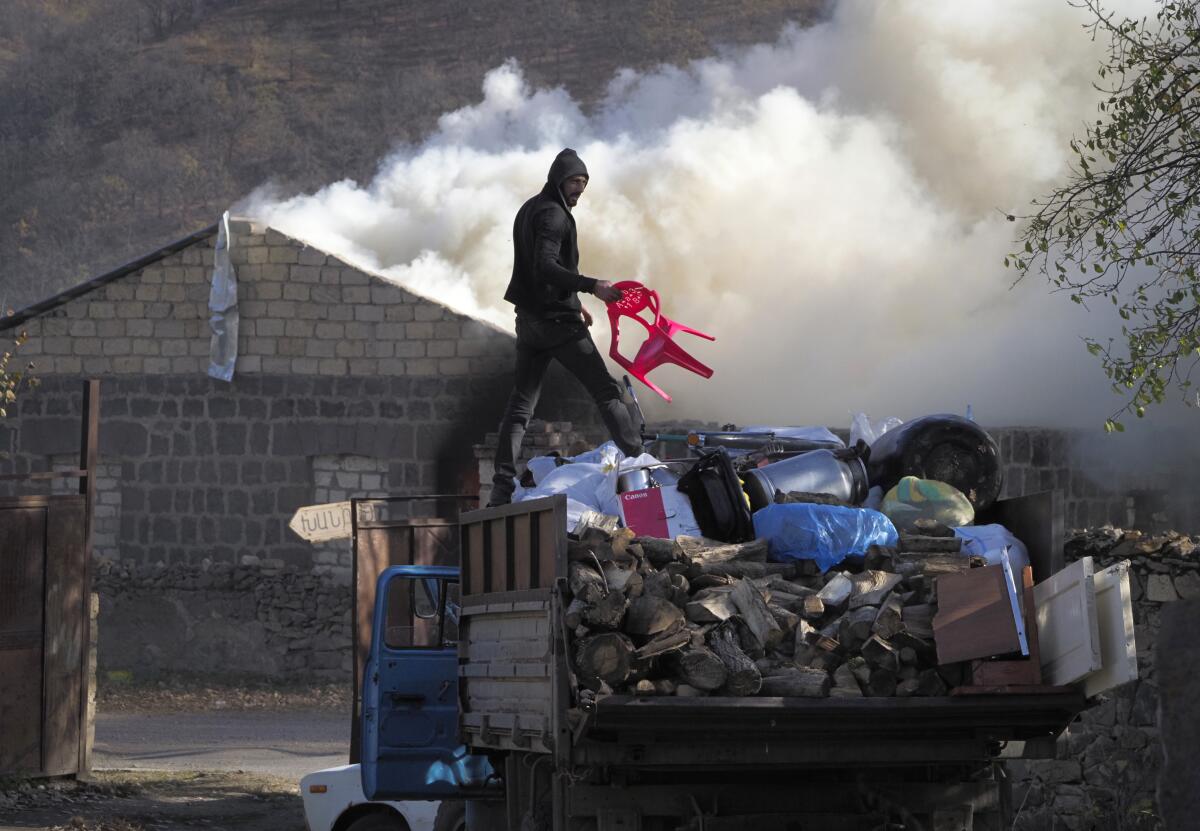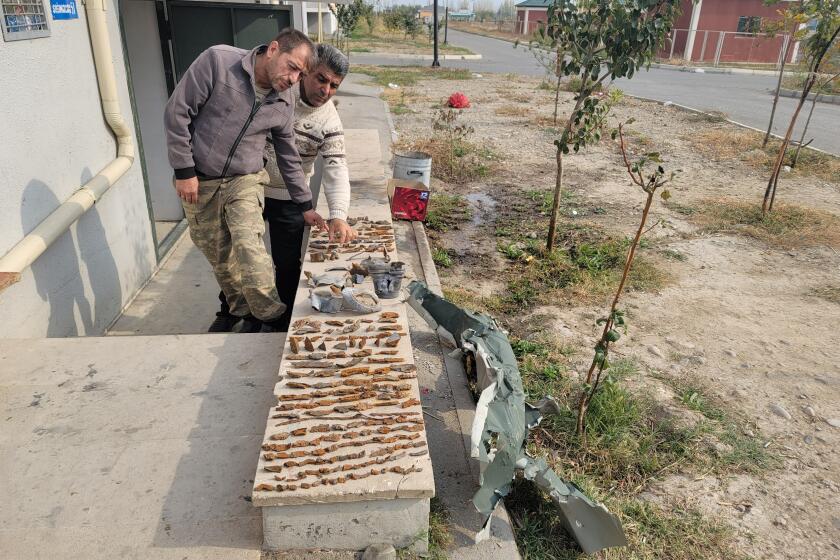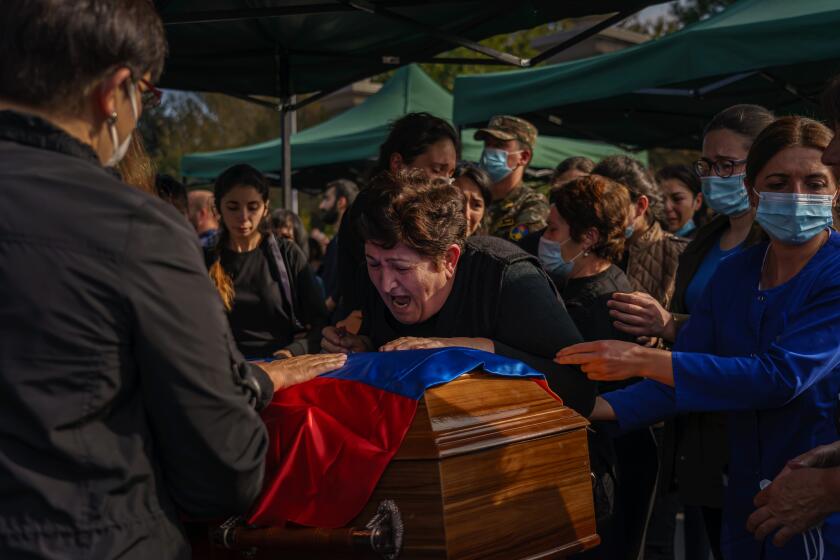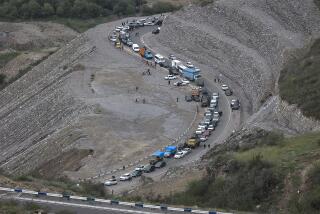Armenians torch their homes as they flee land ceded to Azerbaijan

- Share via
KALBAJAR, Azerbaijan — In a bitter farewell to his home of 21 years, Garo Dadevusyan wrenched off its metal roof and prepared to set the stone house on fire. Thick smoke poured from houses that his neighbors had already torched before fleeing this ethnic Armenian village about to come under Azerbaijani control.
The village is to be turned over to Azerbaijan on Sunday as part of territorial concessions in an agreement to end six weeks of intense fighting with Armenian forces. The move gripped its 600 people with fear and anger so deep that they destroyed the homes they loved.
The settlement — called Karvachar in Armenian — is legally part of Azerbaijan, but it has been under the control of ethnic Armenians since the 1994 end of a war over the Nagorno-Karabakh region. That war left not only Nagorno-Karabakh — which Armenians call Artsakh — but substantial surrounding territory in Armenian hands.
After years in which sporadic clashes broke out between Azerbaijani and Armenian forces, full-scale fighting began in late September this year. Azerbaijan made relentless military advances, culminating in the seizure of the city of Shusha, a strategically key city and one of strong emotional significance as a longtime center of Azeri culture.
Two days after Azerbaijan announced it had taken Shusha — known to Armenians and Shushi — Armenia and Azerbaijan signed a Russia-brokered cease-fire under which territory that Armenia occupies outside the formal borders of Nagorno-Karabakh will be gradually ceded.
Deadly fighting over Nagorno-Karabakh has caused grief and anger. But for many Azerbaijanis displaced by the conflict, it’s also brought hope.
Muslim Azeris and Christian Armenians once lived together in these regions, however uneasily. Although the cease-fire ends the fighting, it aggravates ethnic animosity.
“In the end, we will blow it up or set it on fire, in order not to leave anything to Muslims,” Dadevusyan said of his house.
He spoke while taking a rest from salvaging what he could from the home, including metal roof panels, and piling it onto an aged flatbed truck.
The truck’s final destination is unclear.
“We are homeless now, do not know where to go and where to live. Do not know where to live. It is very hard,” said his wife, Lusine, choked by tears, as they gave the interior of the house a last look.
Dadevusyan’s dismay extended to Russian President Vladimir Putin. Armenia and Russia keep close relations and Russia has a sizeable military base in Armenia, so many Armenians had hoped for support from Moscow. Instead, Russia facilitated the cease-fire and territorial concessions and is sending in nearly 2,000 peacekeepers to enforce it.
“Why has Putin abandoned us?” Dadevusyan said.
Hundreds of thousands of Azeris were displaced by the war that ended in 1994. It is unclear when any civilians might try to settle in Karvachar — which will now be known by its Azeri name, Kalbajar — or elsewhere.
Their decades-old battle over the mountainous territory of Nagorno-Karabakh has come to define how Armenians and Azerbaijanis view themselves.
Any returns could be wrenching. Settlers will confront the burned, empty shells of houses — or worse. Agdam, which is to be turned over next week, once was a city of about 40,000, but now is an empty sprawl of buildings that were destroyed in the first war or later ruined by pillagers grabbing building materials.
For the Dadevusyans, their sudden relocation is overwhelming beyond words.
“When you spent 21 years here and now need to leave it...” Garo Dadevusyan said, trailing off, as smoke from nearby burning houses choked the air. Soon, he knew, his house would be one of them.
More to Read
Sign up for Essential California
The most important California stories and recommendations in your inbox every morning.
You may occasionally receive promotional content from the Los Angeles Times.















